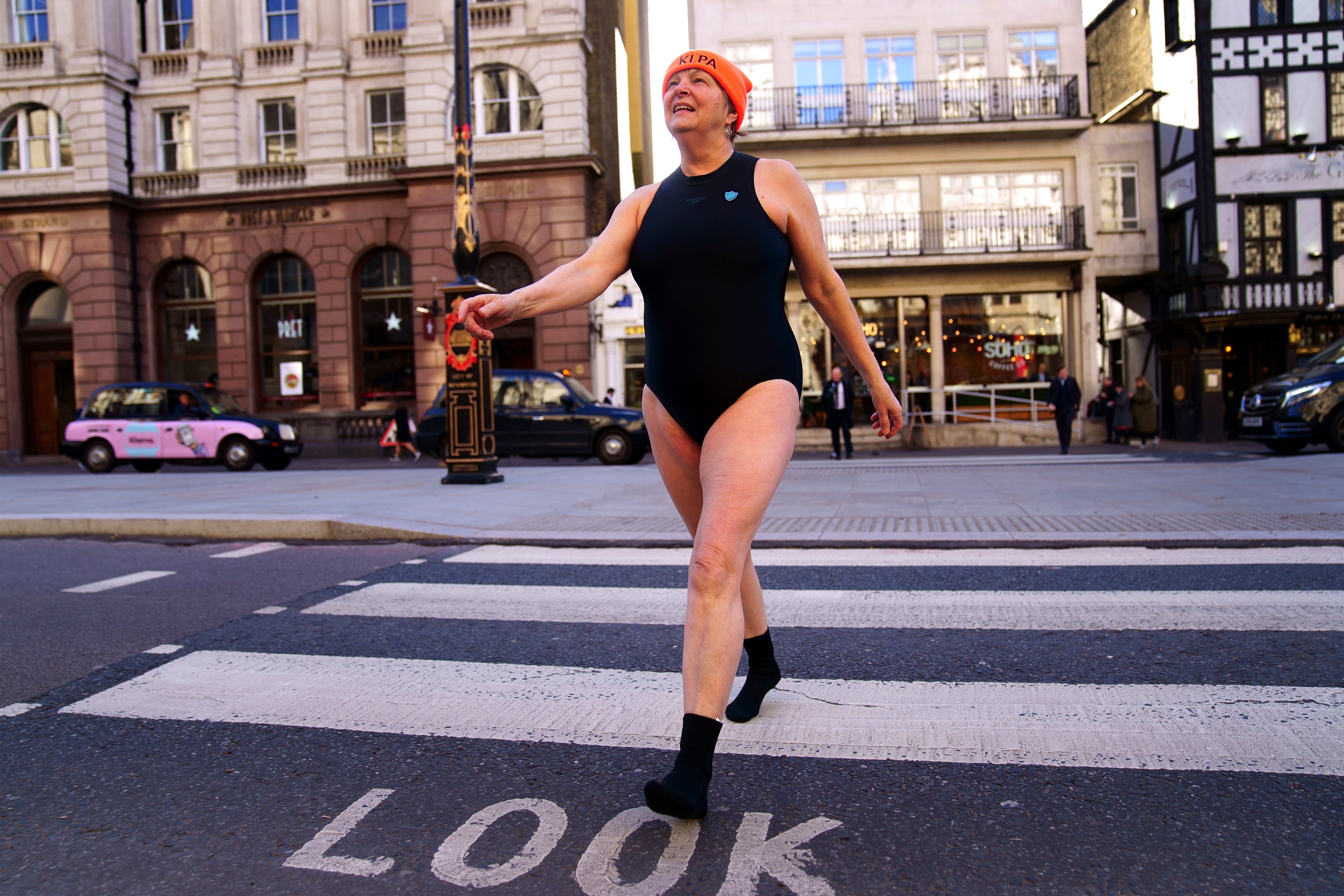Disabled swimmer loses High Court fight over prices at London bathing pond
Christina Efthimiou, 60, claimed that prices at Kenwood Ladies’ Bathing Pond on Hampstead Heath “give rise to unlawful disability discrimination”.

A 60-year-old disabled swimmer has lost a High Court fight over ticket prices at a “unique” bathing pond in London.
Christina Efthimiou claimed that prices at Kenwood Ladies’ Bathing Pond on Hampstead Heath “give rise to unlawful disability discrimination”.
She took legal action against the City of London, whose lawyers disputed her claim.
A judge ruled against her on Thursday.
Mr Justice Cotter had considered the argument at a High Court hearing in London earlier this year.
Ms Efthimiou had watched the hearing via video link but a number of her friends and fellow swimmers were in court – and posed outside for photographs in their swimsuits.
A barrister representing Ms Efthimiou, who lives in Camden, had told Mr Justice Cotter that the pond is a “unique space”.
Zoe Leventhal said it is the only natural bathing pond exclusively for women in Europe.
Ms Efthimiou, a member of the Kenwood Ladies’ Pond Association, argued that a charging regime, which came into effect in April 2021, disproportionality and adversely affects people with disabilities.
Fellow members of the Kenwood Ladies’ Pond Association backed her claim.
A barrister representing the City of London told the judge that Ms Efthimiou’s claim should be dismissed.
Clive Sheldon QC said the Kenwood Ladies’ Bathing Pond is one of three bathing ponds on Hampstead Heath.
“Ticket prices are cheap, relative to the ponds’ operating costs,” he told the judge.
“Prices for disabled swimmers are even cheaper. All disabled swimmers receive a 40% discount.”
He said the standard price for a single swim was £4.05, while disabled swimmers pay £2.43.
Mr Sheldon added: “It cannot be right that service providers are required by law to charge lower prices to disabled persons, or to other groups with protected characteristics.”
Ms Efthimiou told the judge in a witness statement that swimming is the “best exercise available to her” and said “the ponds” have become something she relies on “mentally, emotionally and physically”.
She said the impact of regular access to the ponds on her disabilities is “huge” because she does not need to take “as much pain relief”.
In a written ruling, Mr Justice Cotter said there were three bathing ponds at Hampstead Heath: a ladies’ pond, a men’s pond and a mixed pond.
He said the ladies’ pond has been used since 1925.
“Of the three bathing ponds, it has historically had the greatest degree of accessibility for disabled swimmers, with level access, an accessible toilet and shower and a hoist in the pond,” he said.
“In the year 2019/20, there were 655,000 recorded visits to the ladies’ pond.”
The judge said: “The claimant’s case is that the defendant, in adopting and refusing to revise an updated charging policy on February 24 2021 (effective from April 1 2021) has breached its duty to make reasonable adjustments for disabled persons such as her under sections … of the Equality Act 2010.”
He added: “It is argued that the policy places disabled people at a substantial disadvantage in accessing swimming at the ponds on Hampstead Heath.
“Also, that the defendant has failed to take such steps as are reasonable to reduce or avoid the disadvantage, despite various requests and suggestions having been made by the claimant and others.
“It is argued in the alternative that the charging policy constitutes indirect discrimination against those who have disabilities.”
He said the City of London disputed the claim.
“It is the defendant’s case that heavily subsidised prices, including a 40% discount for disabled swimmers, cannot possibly give rise to unlawful disability discrimination,” said the judge.
“No decided case has ever found that ‘service providers’ are required by the Equality Act 2010 to provide goods and services at a discounted price to disabled persons.”
Mr Justice Cotter said he had concluded that the charging structure did not “place a disabled person at a substantial disadvantage in comparison with persons who are not disabled”.
“The claimant’s argument offends the principle of ensuring socio-economic equality and gives disabled people (many of whom will not be on a low income) preferential treatment over all others on low income,” he said.
“In my judgment, the court must be careful not to allow the 2010 Act to be used so as to achieve the direct opposite of what it was enacted to achieve.”
He said he was satisfied that the City of London had established that “it has not failed to make reasonable adjustments”.
The judge added: “I am also satisfied that the charging policy is a proportionate means of achieving a legitimate aim.”
